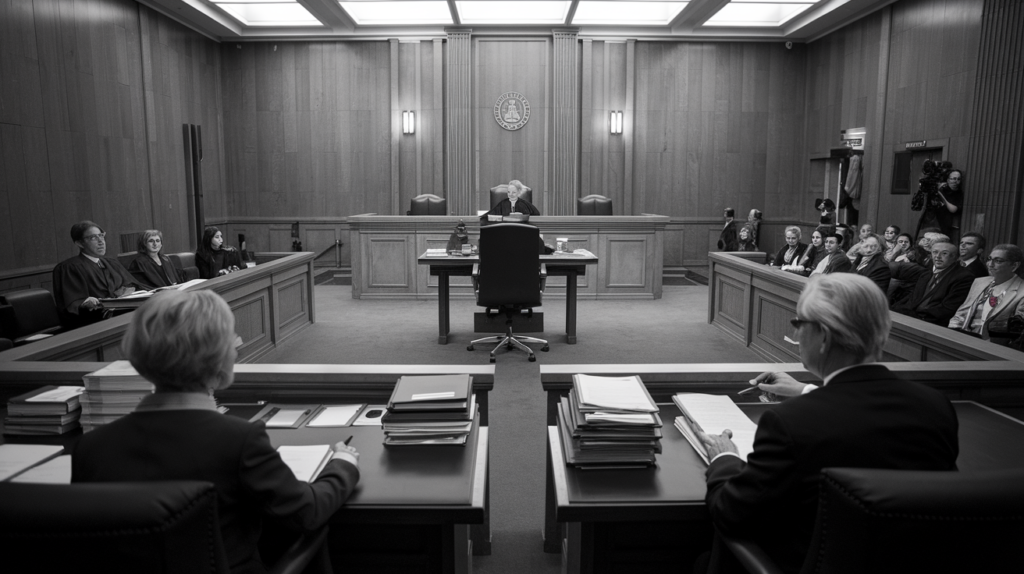What is an Appeal?
An Appeal is, “The complaint to a superior court of an injustice done or error committed by an inferior one, whose judgment or decision the court above is called upon to correct or reverse.” (Black’s Law Dictionary 124. 4th Ed. Rev. 1968)

The appeal process involves a losing party requesting a higher court to reconsider a ruling or decision made at trial. Most appeals take place in an appellate court. The party making an appeal is known as the appellant, while the original winning party is known as the appellee or respondent. Common errors that can be considered proper grounds for appeal may include legal application errors by a sitting judge, procedural errors conducted by attorneys, or evidence issues such as improper evidence being allowed in court or important evidence being wrongfully excluded from court. After arguments from both the appellant and appellee as to why a court’s decision is either proper or not, the appellant court will decide to affirm, reverse, or remand that decision. When a decision is remanded, that particular case is sent back to a lower court for a new trial or other proceedings.
An appeal can only be made after a final judgment is made. A case can not be appealed when it is ongoing or if facts of the case are in dispute. Rulings in cases such as Bowersock v. Missouri Valley Drainage Dist. of Holt County clarify that appeals are continuations of existing lawsuits, not lawsuits themselves. While appeals may lengthen the legal process, they are seen as vital parts of the justice system. They exist to insure that errors or issues don’t result in the wrong rulings.
More information about Appeal
PA Workers’ Compensation Denials
As a state with a long history of being at the forefront of industry, manufacturing, natural resources, and transportation, Pennsylvania has a long relationship with the fight for worker rights.
The need to safeguard workers became increasingly apparent as Pennsylvania’s industrial revolution moved forward in the early 20th century. Hazardous workplace conditions caused injuries to grow in both type and frequency. This surge in workplace accidents highlighted the necessity for laws designed to protect employees, leading to the development of workers’ compensation regulations. The Pennsylvania Workers’ Compensation Act of 1915 was a law that provided employees with financial protection while requiring employers to maintain workers’ compensation insurance coverage.
If you have experienced a workplace injury in PA, you should be able to rely on this historic Pennsylvania state law to provide a financial safety net for you and your family while you recover. […]
Read MoreMore information about Appeal
East Stroudsburg Personal Injury Lawyers
 Whether you’ve been involved in a car or motorcycle accident or experienced medical malpractice such as a surgical error, you might be overcome with the many new challenges you now have to deal with. The physical toll your injury has taken on you and your family, the mounting medical bills, and lost wages due to missed work, coupled with trying to understand your legal rig,hts can become overwhelming. If you have tragically lost a loved one, you might be considering a wrongful death case, but you don’t know where to begin.
Whether you’ve been involved in a car or motorcycle accident or experienced medical malpractice such as a surgical error, you might be overcome with the many new challenges you now have to deal with. The physical toll your injury has taken on you and your family, the mounting medical bills, and lost wages due to missed work, coupled with trying to understand your legal rig,hts can become overwhelming. If you have tragically lost a loved one, you might be considering a wrongful death case, but you don’t know where to begin.
At Munley Law, we’ve been fighting for personal injury victims since 1959, earning national recognition for our expertise in personal injury litigation. Our attorneys have been named among the Best Lawyers in America, Pennsylvania Super Lawyers, and are board certified by the National Board of Trial Advocacy. Our proven track record has secured numerous multi-million dollar settlements and verdicts for our clients. […]
Read MoreMore information about Appeal
Towanda Personal Injury Lawyer
Accidents happen daily, but that doesn’t mean the victims should shoulder the financial burdens of someone else’s negligence. Serving Towanda, the personal injury lawyers of Munley Law handle a wide range of accident claims, helping victims recover compensation for their medical bills, lost wages, property damage, pain and suffering, and more. With a commitment to quality client service, our lawyers handle the most complex cases and represent injured victims.
helping victims recover compensation for their medical bills, lost wages, property damage, pain and suffering, and more. With a commitment to quality client service, our lawyers handle the most complex cases and represent injured victims.
With multi-million dollar recoveries for clients, Munley Law is the firm to call when you’re injured. Call today for a no-obligation consultation.
Towanda Personal Injury Cases Our Attorneys Handle
Our comprehensive, full-service law firm handles the following personal injury cases in Towanda.
Car Accidents
In 2022, the Pennsylvania Department of Transportation reported over 500 car accidents in Bradford County alone. With auto accidents being so common, victims need to know what options they have for financial recovery. […]
Read MoreMore information about Appeal
Easton Workers’ Compensation Lawyer
When you are injured at work, medical expenses can quickly add up. Workers’ compensation benefits are designed to help workers with financial support in the event of a workplace injury due to an accident or repetitive stress (such as back injuries or carpal tunnel) or work-related illnesses from poor, unsanitary, or unsafe working conditions.
Whether your injury occurred in Easton, Allentown, or elsewhere in the Lehigh Valley, finding an experienced Easton workers’ compensation lawyer can help. The team of dedicated attorneys at Munley Law’s Lehigh Valley law office will work tirelessly to ensure you receive maximum workplace injury benefits.
If your workers’ comp claim is denied, don’t panic. The experienced attorneys at Munley Law in Easton can help you appeal the decision and fight for the benefits you are entitled to. We have a strong track record of successfully handling denied claims and will use our expertise to advocate for you. […]
Read MoreMore information about Appeal
Can I Receive Death Benefits If a Family Member Dies on the Job in PA?
Losing a loved one to a workplace accident or a work-related illness is a devastating experience. In addition to the emotional toll, families often face financial hardships due to the sudden loss of income. Pennsylvania workers’ compensation death benefits are designed to provide financial support to the dependents of workers who die as a result of work-related injuries or illnesses.
Understanding Workers’ Compensation Death Benefits in Pennsylvania
 Workers’ compensation is a state-mandated insurance program that provides weekly benefits to employees who suffer work-related injuries or illnesses.
Workers’ compensation is a state-mandated insurance program that provides weekly benefits to employees who suffer work-related injuries or illnesses.
The primary goal of this system is to ensure that injured workers receive prompt and fair compensation for medical expenses, lost wages, and rehabilitation costs without litigation. In return for these guaranteed benefits, employees generally forfeit the right to sue their employer for negligence, creating a balanced system that protects workers and employers.
Workers’ compensation death benefits are special workers comp financial benefits provided to the dependents of a worker who has died as a result of a work-related injury or illness. […]
Read More








